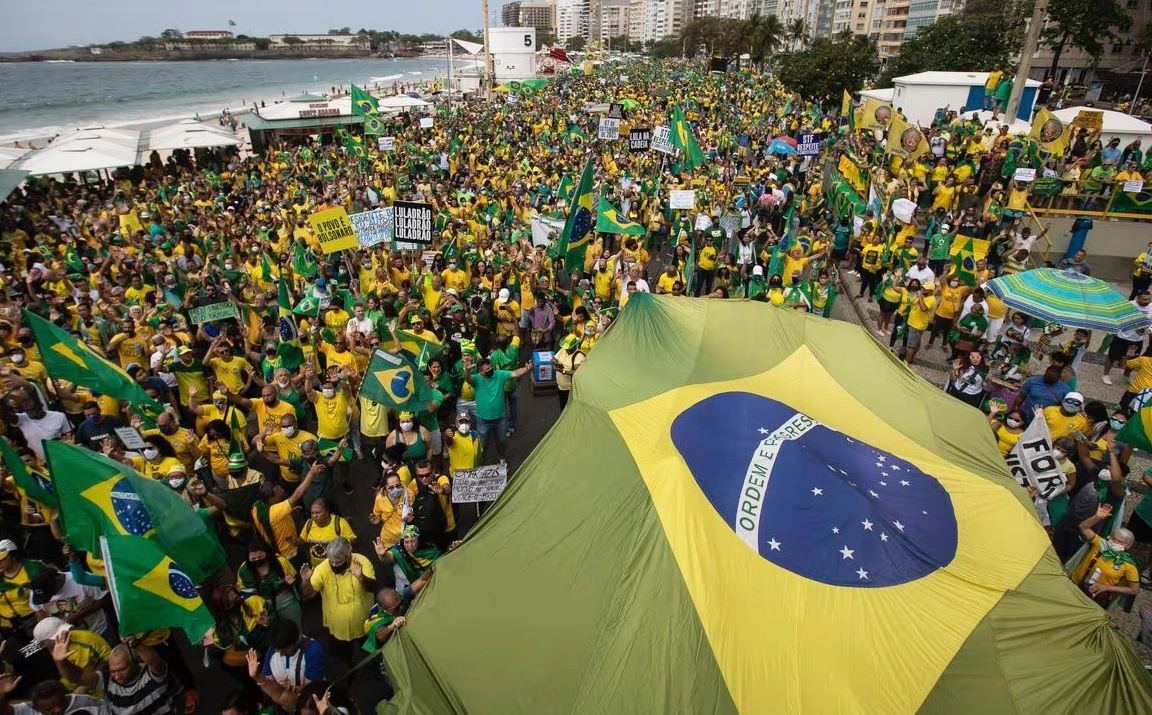In the coming weeks, it will be 60 years since the coup that overthrew President Joao Goulart in Brazil and installed the last dictatorship. It was the morning of Wednesday, April 1, 1964. Among Brazilian military supporters of the coup, the event is referred to as the “revolution of 1964” or the “counterrevolution of 1964”. And it seems that Brazilian politics is preparing to remember it by recreating, in a very different context, similar behaviors, playing on the brink of catastrophe.
The judicial investigation into the attempt by former president Jair Bolsonaro and his close collaborators to prevent the inauguration of his successor Lula da Silva, the duel between the two, and the incidence of external factors, with perplexing statements by Lula, take us back to so many similar episodes in the Latin American history of the 20th century. Failed or consummated coups d’état, bloody or bloodless interruptions of constitutional mandates, overthrowing presidents, or preventing them from taking office, were common practices in the past. Forty years of democracy have tamed the wild beasts and channeled crises and conspiracies through constitutional channels.
Curzio Malaparte, an Italian journalist, diplomat, and writer who initially adhered to fascism and later abjured it and suffered it, observed the phenomenon in Europe in the 1920s: liberal democracies were falling under the siege of radicalized rightists and leftists. In “Technique du coup d’état”, a book published in 1931, Malaparte deals with different emblematic cases of attempts to seize power, some successful, others frustrated, from Napoleon to Louis Bonaparte, from Lenin and Trotsky to Mussolini and Hitler. He argued that the conquest and defense of a state were matters that obeyed rules and procedures that had to be understood, both to use them and to confront them, beyond the economic, social, or ideological conditions.
In Latin America, under this same modality, coups d’état were prepared and consummated in the name of democracy and against communism. Now it is different. Democracies have put down more roots, the Armed Forces are less likely to be dragged into political adventures in the name of “the salvation of the homeland”, there are judicial powers and civil societies whose actions and voices are more difficult to silence, although there will be no lack of those who try to do so. Although on networks, new forms of psychological action and “climates of opinion” are propagated, to which trolls, fake news, and negative campaigns contribute.
The truth is that in the digital era, everything is exposed and in plain sight: former President Bolsonaro himself, in addition to being an experienced politician and veteran of the parliamentary arena, himself a retired military officer with the rank of Army captain, was responsible for filming the meetings of the conspiracy, evidence that is attached to the judicial process against him.
Months before the elections, Bolsonaro sought reelection and confronted his great rival Lula da Silva — back in the political arena after spending 19 months in prison for a conviction in a corruption case — denouncing the possibility of fraud and claiming that there was a conspiracy to seize power from him. This is how he conveyed it to foreign ambassadors. As a result of this intervention, Bolsonaro was disqualified from running for election until 2030.
On October 30, Lula won the closest election in Brazilian history. The leader of the Workers’ Party obtained 50.9% against Bolsonaro’s 49.1%. The following day, tens of thousands of supporters of Bolsonaro claimed fraud in front of barracks all over Brazil and called for military intervention. On November 19, three advisors meet Bolsonaro at the presidential palace and bring him a draft of a coup decree that contemplates annulling the elections and arresting two Supreme Court judges and the president of the Senate. Bolsonaro summons the leadership of the Armed Forces, Generals Marco Antonio Freire Gomes (Army) and Carlos Baptista (Aeronautics), Admiral Ailton Garnier (Navy), and the Minister of Defense to present them with the decree with which he intends to clothe in legality what would be a constitutional rupture. The Navy chief embraces the idea. But his Army and Air Force colleagues are hesitant. Two weeks before the end of Bolsonaro’s term — Lula took office on January 1, 2023 — the Bolsonarist digital militias are active in a campaign against the Army and Air Force chiefs, calling them “traitors to the homeland”.
A week after Lula took office, Brazil experienced a new shock. On January 8, 2023, thousands of Bolsonaristas, who were camped outside the Army Headquarters, descended to the Three Powers Square and assaulted the heart of Brazilian democracy in Brasília. A mob of followers of the former president took over the headquarters of the Congress, the Presidency, and the Supreme Court of Justice, emulating what happened in Washington on January 6, 2021. They smash glass and furniture before the impotence of the police, who only managed to take control several hours later.
Bolsonaro and 28 other people are formally accused of masterminding a coup attempt. Four of them, advisors of the former government, were arrested in the Tempus Veritatis operation. The others are subjected to various precautionary measures. The former president’s passport is confiscated, and he is forbidden to travel abroad. His situation seems increasingly complicated.
Sixty years after the 1964 coup d´état, the judicial investigation that compromises him serves Bolsonaro to campaign, follow the “Trump2024 style manual”, reverse the burden of proof, accuse the Judiciary of persecuting him and seek to take revenge against his successor, who — for his part — seems to play the same game with his controversial statements on the most sensitive issues of international politics, which motivated requests for “impeachment” against him in Parliament.
Curzio Malaparte would have a gallery of characters to add several Latin American chapters to his classic work. First as tragedy, then as farce, history never repeats itself… but, as Mark Twain said, it often rhymes.
*Text originally published in Clarín newspaper.
**Translated by Janaína Ruviaro da Silva from the original in English.











